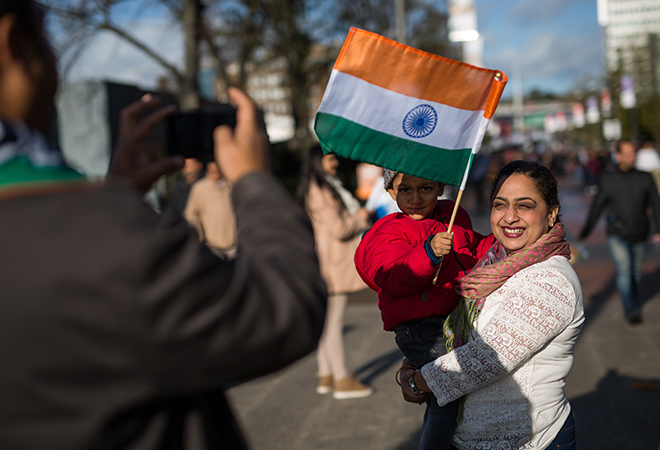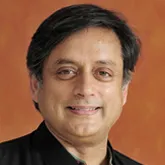-
CENTRES
Progammes & Centres
Location
As political ideologies fail to provide purpose and meaning to individuals, they are increasingly finding refuge in identity and religion. The thin line separating church and state is collapsing rapidly.

The international community will stumble into the third decade of this century amidst much uncertainty and anxiety about the future. There is a sense that the gains of the past century are being undone, that grievances — real or perceived — are being manipulated by “strongmen leaders” who have gained currency across the world, and that subsequent generations are likely to be worse off than their ancestors. Many blame our current predicament on these leaders, who are seen to have undermined the norms and institutions that their predecessors were instrumental in establishing. Yet these populist figures are not drivers of change; they reflect it.
How did we get here? It is increasingly clear to communities and countries that the distribution of agency in the international system is inequitable and no longer reflects contemporary realities. It is this anger and disappointment, directed against globalisation, that has powered the rise of these strongmen and women.
While the project of economic integration has successfully reduced inequality among countries, its domestic consequences were given insufficient consideration by those evangelising the old global economic order. Should exclusionary economics and the rise of nationalism really surprise us when 10 per cent of the global population controls 84 per cent of its wealth? As the fourth industrial revolution continues to accelerate the demise of manufacturing and implicate organised labour, a deep sense of economic insecurity is fuelling perverse socio-political developments around the world.
The affected individual has found an ally in digital technologies. Ordinary people now possess a loud megaphone to communicate with each other and with the state, sometimes supporting the establishment, and often undermining it. From the Arab Spring at the turn of the past decade to the ongoing protests in Hong Kong, digital technologies have erased the asymmetry between the voice of those in power and those governed. This understanding of digital technologies is now being reassessed as well. The very tools that allow communities to mobilise are fast becoming instruments to subdue and control them. Today’s technologies, defined by ubiquitous surveillance and algorithmic decision making, are concentrating wealth and power into the few hands capable of designing and deploying them. The coming decade will inevitably witness a new tussle between agency and control.
Taken together, the anxieties around technology, globalisation and representation have left democracies around the world struggling to contain discord and discontent. Once characterised by the rule of elite institutions arranged around a set of established principles, democracy’s immediate future is being recast by the changing mood on the streets that is challenging many old norms and values. We are all struggling to define this moment. Scholars and scientists are certainly trying, describing the political climate in democracies variously as illiberal, authoritarian, partial or empty. However it is theorised, it is clear that the texture of democracy will undergo a dramatic shift in the time it takes to fully appreciate the limitations of today’s political projects.
As political ideologies fail to provide purpose and meaning to individuals, they are increasingly finding refuge in identity and religion. The thin line separating church and state is collapsing rapidly. Dislocated from the factory floor and distant from the corridors of power, individuals who once organised themselves under an imagined state of cosmopolitanism are now rallying around a far narrower, tribal sense of self, often located in specificities of place, religion and ethnicity.
This fracturing of the political-economic consensus has diminished the international community’s capacity for collective action. The most crucial failure perhaps relates to mitigating climate change. The 2020s are certain to be a crucial decade for climate action and politics. Once a priority only for scientists and activists, the impact of climate change is now more visible and more devastating than any time in history. Consider, for instance, that climate refugees now outnumber those fleeing conflict or looking for economic opportunity. Individuals, businesses and states remain at war with their environment and constrained by short-term thinking in their limited efforts to end this conflict.
When the world is struggling to manage the most pressing existential risk, is it any surprise that other international regimes are equally gridlocked? Twentieth-century rules relating to trade, connectivity, innovation, peace and security have all become forums for the application of perverse unilateral state behaviour. Instead of searching for shared interests that can make these regimes fit for purpose in the 21st century, states are locked into an increasingly destructive zero-sum race.
In these challenging times, defined by what we characterise in our new book as the “New World Disorder”, we cannot overstress how important it is for us in New Delhi to rethink the paradigms that are challenging our world order. Today, the need is for India’s reflexive and discrete responses to these challenges to evolve into the creation of a coalition of like-minded leaders who will use their individual and institutional capacities to respond to the demands of global governance in the 21st century.
This century will take shape in an era of strong leaders, strong corporations and strong communities. It will be an era where cooperation is sporadic, where contest is frequent and consensus is elusive. We hope that India will find the courage to take fresh new initiatives to catalyse a new consensus for our world.
Buy The New World Disorder and the Indian Imperative here.
The above essay originally appeared in The Indian Express
The views expressed above belong to the author(s). ORF research and analyses now available on Telegram! Click here to access our curated content — blogs, longforms and interviews.

Samir Saran is the President of the Observer Research Foundation (ORF), India’s premier think tank, headquartered in New Delhi with affiliates in North America and ...
Read More +
Shashi Tharoor' is an author politician and former international civil servant. Currently a third-term Lok Sabha MP representing the Thiruvananthapuram constituency and Chairman of the ...
Read More +